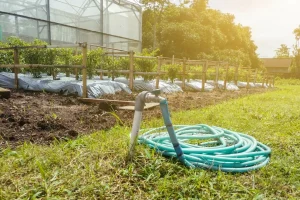Smart farming applications offer digital solutions that enable the efficient use of water resources. Furthermore, these applications operate based on sensors and automation systems. Therefore, irrigation is only carried out in areas where it is needed. In this case, water waste is largely prevented. In this way, environmental sustainability is supported and costs are reduced. Furthermore, soil moisture sensors provide real-time data. Therefore, irrigation decisions are made based on data. In this case, plants receive water at the right time. This ensures healthy and balanced growth. Moreover, weather data is integrated into the systems. Therefore, irrigation is stopped on rainy days. This maximizes the benefit from natural resources. This also reduces energy consumption in agriculture. Furthermore, the entire process is managed remotely via mobile applications. This saves the producer time.
- How to Improve Water Efficiency in Irrigation Systems?
- Soil Structure and Water Holding Capacity Management
- Rainwater Harvesting and Agricultural Use
- Water Management Technologies in Precision Agriculture
- The Relationship Between Water Management and Agricultural Productivity
- Conclusion
- Frequently Asked Questions
How to Improve Water Efficiency in Irrigation Systems?
Water efficiency in irrigation systems can be significantly increased with the right technology and planning. Furthermore, soil and plant analysis is the first step towards efficiency. Therefore, irrigation should be carried out according to the plant’s needs. In this case, unnecessary water usage is prevented. This way, both water and energy savings are achieved. Furthermore, drip and sprinkler systems should be preferred. This ensures that water reaches the root zone directly. In this case, evaporation and surface losses are reduced. This way, high yields are achieved with less water. Furthermore, soil moisture sensors should be used. This ensures that irrigation timing is based on scientific data. In this case, plants receive only the water they need. This protects plant health and supports growth. Additionally, the systems can operate with automatic control units. This allows for precise adjustment of irrigation duration and quantity. In this case, manual errors are eliminated.

Soil Structure and Water Holding Capacity Management
Soil structure is of great importance in terms of water retention and delivery to plants. Furthermore, water retention capacity depends on the physical properties of the soil. Therefore, soil analysis should be conducted to determine appropriate management methods. In this case, efficient water use is ensured. This way, irrigation frequency decreases and costs are reduced. Additionally, the organic matter content in the soil should be increased. As a result, the soil can retain water for a longer period. In this case, plant growth is supported even during dry periods. This increases productivity and reduces stress. Furthermore, soil cultivation methods should be applied carefully. Therefore, soil compaction should be prevented. In this case, water is distributed more evenly in the soil. This positively affects root development. Additionally, mulching can reduce evaporation losses.
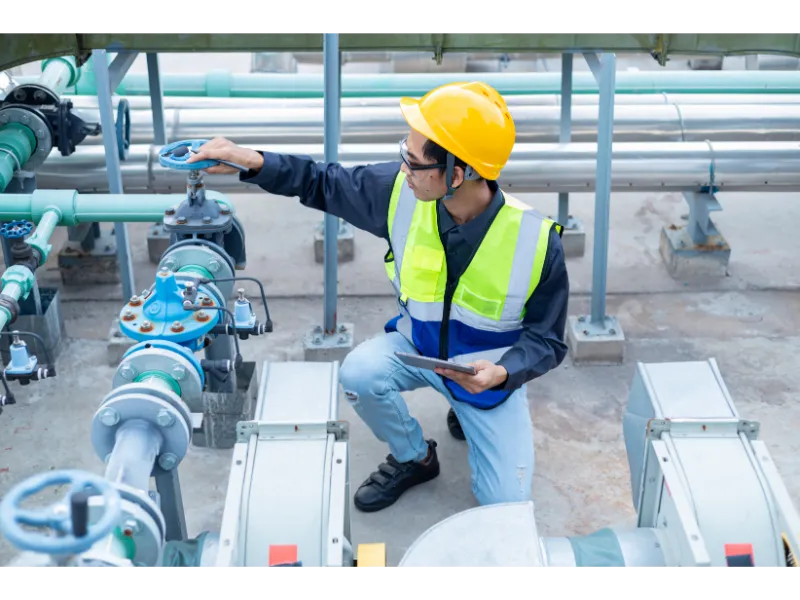
Rainwater Harvesting and Agricultural Use
Rainwater harvesting is an effective way to create an alternative water source in agriculture. It also allows natural rainfall to be collected and utilized. Therefore, water stress can be reduced, especially in arid regions. In this case, irrigation needs are not dependent on external sources. This way, water costs decrease and production becomes sustainable. Furthermore, rainwater can be collected from roofs and land surfaces. Therefore, storage systems must be properly planned. In this case, the collected water can be used for a long time. This supports plant growth during dry periods. Furthermore, rainwater can be made suitable for agriculture through pre-treatment. This ensures safe and efficient use. In this case, product quality is maintained and yield increases. Additionally, the systems can be installed at low cost with simple structures. This makes them suitable for small-scale farmers as well. In this case, the pressure on water resources is reduced.
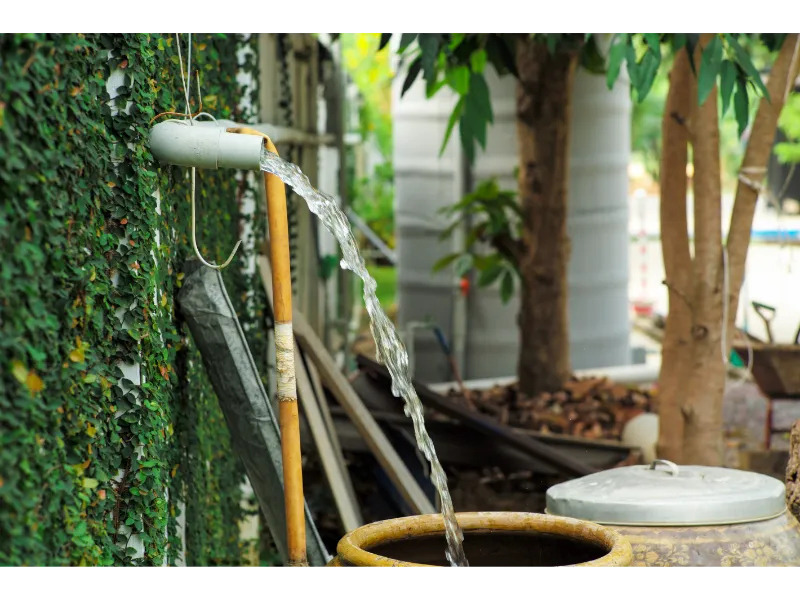
Water Management Technologies in Precision Agriculture
Water management in precision agriculture is becoming more efficient with data-driven technologies. Additionally, sensors and software enable the optimization of water usage. Therefore, only the areas that require it are irrigated. In this case, water waste is prevented and costs are reduced. This way, agricultural production becomes more sustainable. Furthermore, soil moisture sensors provide real-time data. Therefore, irrigation decisions are made based on the current situation. In this case, plants are nourished in a balanced manner. This increases product quality and yield. In addition, weather forecasts are integrated into the system. Therefore, irrigation is automatically stopped on rainy days. In this case, maximum benefit is obtained from natural resources. Furthermore, remote access systems offer convenience to the user. Therefore, farmers can monitor processes at any time. This minimizes human error. This saves time and labor.
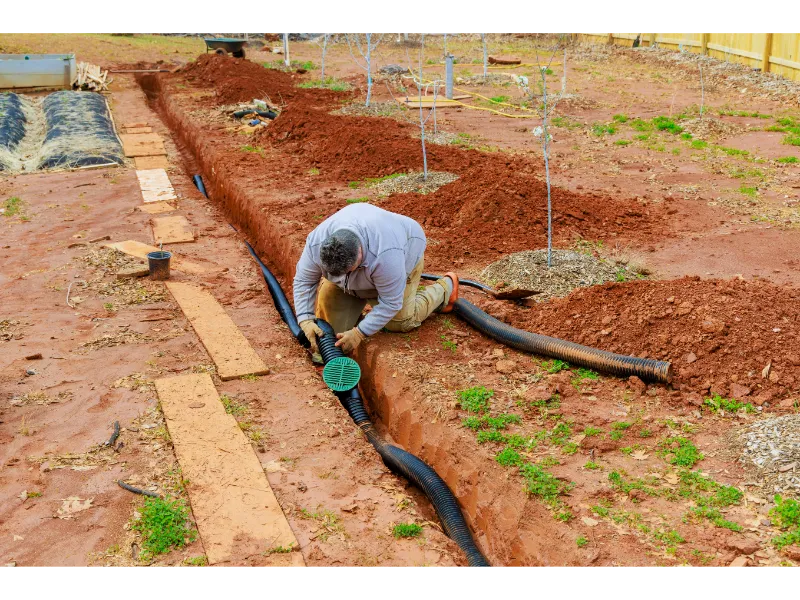
The Relationship Between Water Management and Agricultural Productivity
Water management is a fundamental factor that directly affects agricultural productivity. Furthermore, proper water management directly supports the healthy growth of plants. Therefore, irrigation timing and quantity must be carefully determined. In this case, yield loss in plants experiencing water stress is prevented. In this way, production quality increases and losses decrease. Furthermore, modern irrigation systems make this process more controllable. Therefore, soil and weather data should be taken into account. In this case, only the areas that need it are irrigated. This prevents water waste and reduces costs. Furthermore, plants receive as much water as they need. This supports root development and improves product quality. In this case, balanced irrigation directly affects productivity. This way, more products are obtained with fewer resources. In addition, regular water management ensures long-term success. This increases resistance to climate change.
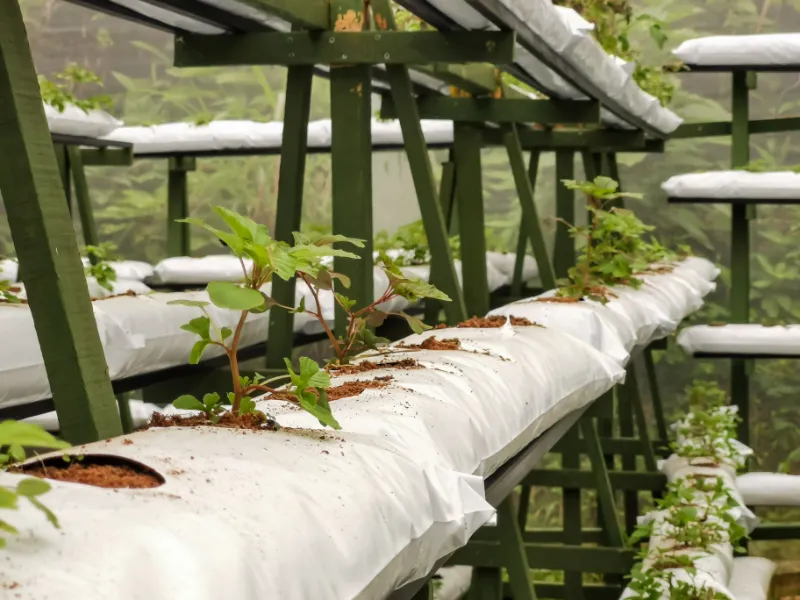
Conclusion
As a result, the efficient use of water in agriculture is becoming increasingly important. In addition, climate change is putting serious pressure on water resources. Therefore, it has become inevitable for producers to turn to modern and sustainable solutions. In this case, Effective Water Use with Smart Farming Applications comes to the fore. In this way, irrigation is carried out only when and in the amount needed. Furthermore, data-driven decision-making processes are supported by sensors and automation systems. Consequently, both water waste is reduced and crop yields increase. In this case, environmental impacts are reduced while economic benefits are also achieved. In this way, sustainable agricultural practices are becoming widespread. Moreover, Efficient Water Use with Smart Farming Applications is shaping the future of agriculture in the long term.
Frequently Asked Questions
How can water efficiency be increased in irrigation systems? Efficiency can be increased by using soil moisture sensors and automatic irrigation systems.
How can the water retention capacity of the soil be improved? Capacity can be improved by increasing the organic matter content and improving the soil structure.
Why is rainwater harvesting important in agriculture? It provides an alternative water source during droughts and reduces water costs.
What water management technologies are used in precision agriculture? Sensors, climate data, remote control systems, and automatic valves are used.
How does water management affect agricultural yield? Yield increases with proper irrigation at the right time, and water waste is prevented.
How is rainwater collected and stored? It is collected from roofs, land surfaces, and gutters and stored in tanks or cisterns.
How do smart irrigation systems contribute to efficiency? Plant growth is supported by using only as much water as needed, reducing costs.
How does soil structure affect irrigation strategy? Sandy soils require frequent irrigation, while clay soils retain water longer.
What are the precision irrigation methods? Drip irrigation, sensor-based irrigation, and timer-controlled systems are the most common methods.
Why is water management essential for sustainable agriculture? It conserves resources, adapts to climate change, and ensures continuity in production.






